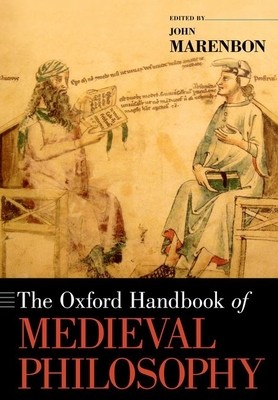
- We will send in 10–14 business days.
- Publisher: Oxford University Press, USA
- ISBN-10: 0190246979
- ISBN-13: 9780190246976
- Format: 16.8 x 23.9 x 4.1 cm, softcover
- Language: English
- SAVE -10% with code: EXTRA
The Oxford Handbook of Medieval Philosophy (e-book) (used book) | bookbook.eu
Reviews
Description
This Handbook is intended to show the links between the philosophy written in the Middle Ages and that being done today. Essays by over twenty medieval specialists, who are also familiar with contemporary discussions, explore areas in logic and philosophy of language, metaphysics, epistemology, moral psychology ethics, aesthetics, political philosophy and philosophy of religion. Each topic has been chosen because it is of present philosophical interest, but a more or less similar set of questions was also discussed in the Middle Ages. No party-line has been set about the extent of the similarity. Some writers (e.g. Panaccio on Universals; Cesalli on States of Affairs) argue that there are the closest continuities. Others (e.g. Thom on Logical Form; Pink on Freedom of the Will) stress the differences. All, however, share the aim of providing new analyses of medieval texts and of writing in a manner that is clear and comprehensible to philosophers who are not medieval
specialists.
EXTRA 10 % discount with code: EXTRA
The promotion ends in 17d.08:34:44
The discount code is valid when purchasing from 10 €. Discounts do not stack.
- Publisher: Oxford University Press, USA
- ISBN-10: 0190246979
- ISBN-13: 9780190246976
- Format: 16.8 x 23.9 x 4.1 cm, softcover
- Language: English English
This Handbook is intended to show the links between the philosophy written in the Middle Ages and that being done today. Essays by over twenty medieval specialists, who are also familiar with contemporary discussions, explore areas in logic and philosophy of language, metaphysics, epistemology, moral psychology ethics, aesthetics, political philosophy and philosophy of religion. Each topic has been chosen because it is of present philosophical interest, but a more or less similar set of questions was also discussed in the Middle Ages. No party-line has been set about the extent of the similarity. Some writers (e.g. Panaccio on Universals; Cesalli on States of Affairs) argue that there are the closest continuities. Others (e.g. Thom on Logical Form; Pink on Freedom of the Will) stress the differences. All, however, share the aim of providing new analyses of medieval texts and of writing in a manner that is clear and comprehensible to philosophers who are not medieval
specialists.


Reviews